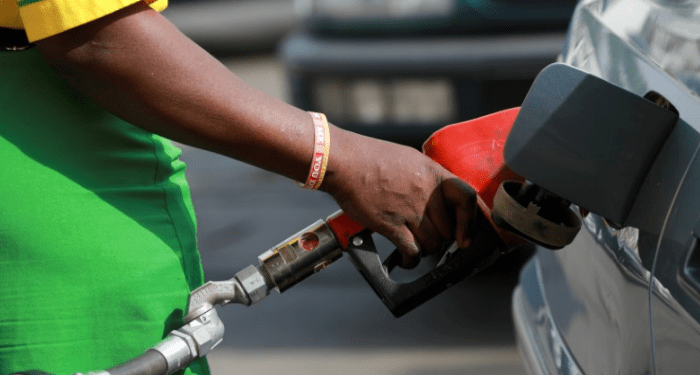The National Bureau of Statistics reports that Nigeria’s petrol imports have decreased significantly since President Bola Tinubu removed the fuel subsidy in May 2023. In 2023, Nigeria imported 20.30 billion liters of petrol, down from 23.54 billion liters in 2022, marking a 13.77% reduction year-on-year.
In its latest petroleum distribution statistics released on Tuesday, the bureau highlighted a drop in petrol imports by 3.58 billion liters in the second half of 2023 compared to the first half. Specifically, Nigeria imported 8.36 billion liters of Premium Motor Spirit (PMS) in the second half of 2023, a notable decline from 11.94 billion liters in the first half, equating to a 29.99% decrease.
The agency noted that the total PMS truck out stood at 20.22 billion liters in 2023, a 16.96% drop from 24.35 billion liters in 2022. The decline is even more pronounced when considering the latter half of 2022, where petrol imports reached 11.98 billion liters, reflecting a 30.22% decrease compared to the same period in 2023.
Monthly fuel import data for 2023 revealed fluctuating trends: 2.09 billion liters in January, 1.99 billion in February, 2.29 billion in March, and a series of declines peaking at 1.09 billion in August. These figures illustrate the significant impact of subsidy removal on petrol import volumes.
Conversely, diesel imports increased in 2023, reaching 4.94 billion liters, up from four billion liters in 2022. The statistics indicate local production of Automotive Gas Oil (AGO) rose to 109.39 million liters, a 6.76% increase from the previous year. Additionally, local production of Household Kerosene surged by 56.02%, climbing from 44.68 million liters in 2022 to 69.71 million liters in 2023.
Following the subsidy removal, fuel prices skyrocketed across Nigeria, with some stations selling PMS at prices as high as N700 per liter. According to the 2023 full-year foreign trade data, Nigeria’s expenditure on fuel imports fell by approximately 2.6%, from N7.7 trillion in 2022 to N7.5 trillion in 2023. In the second half of 2023, fuel importation costs stood at N3.5 trillion, down 10.26% from N3.9 trillion in the first half.
However, in the first half of 2024, Nigeria’s petrol import bill surged to N5.8 trillion, an 87.09% increase compared to the same period in 2023, driven by high crude oil prices and a weakened naira. Minister of Information Idris Mohammed noted that domestic consumption fell by 50%, suggesting that reduced imports may be redirected to other destinations.
The subsidy removal has ignited considerable debate. While the government argues that the funds can be redirected to crucial sectors such as healthcare and education, critics assert that the policy disproportionately affects lower-income Nigerians, contributing to rising living costs. Concerns have emerged about the actual cessation of subsidies, with reports suggesting that the Nigerian National Petroleum Company Limited continues to incur costs related to fuel imports and has sought federal assistance for these expenses.
This situation has raised questions about the transparency and efficacy of the government’s subsidy policy, as well as its implementation.










